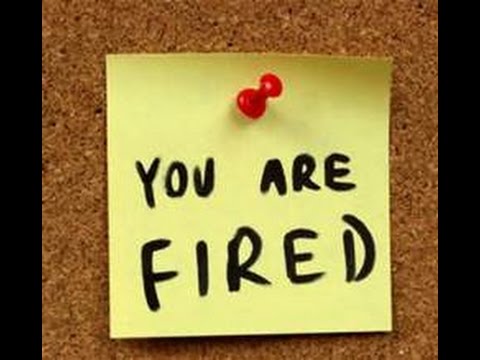 Wal-Mart is the home of everyday low prices. For some employees, it is also the home of illegal employment practices. One Wal-Mart assistant manager found out the hard way that taking medical leave meant getting fired. A New Jersey jury and a federal appellate court found in the manager’s favor, and the company found out the hard way that treating employees like merchandise can have a high price.
Wal-Mart is the home of everyday low prices. For some employees, it is also the home of illegal employment practices. One Wal-Mart assistant manager found out the hard way that taking medical leave meant getting fired. A New Jersey jury and a federal appellate court found in the manager’s favor, and the company found out the hard way that treating employees like merchandise can have a high price.
The Leave of Absence
 Barry Boles, a long-time Wal-Mart employee, worked as an assistant manager in a New Jersey store. In 2011, he started having problems with one of his legs. What first appeared to be a blister later became a five- to six-inch-long ulcer. Boles went first to the emergency room, then to a dermatologist. The two physicians stated that he needed to be out of work from May 8 to 21. His doctors faxed paperwork to the store. In turn, the store sent Boles Family and Medical Leave Act (FMLA) forms to fill out.
Barry Boles, a long-time Wal-Mart employee, worked as an assistant manager in a New Jersey store. In 2011, he started having problems with one of his legs. What first appeared to be a blister later became a five- to six-inch-long ulcer. Boles went first to the emergency room, then to a dermatologist. The two physicians stated that he needed to be out of work from May 8 to 21. His doctors faxed paperwork to the store. In turn, the store sent Boles Family and Medical Leave Act (FMLA) forms to fill out.
Boles saw his dermatologist on May 20. She wrote to Wal-Mart that Boles could not work for at least another month. After getting her note, store manager Mike Ciechalski e-mailed Quawad McDonald, the human resources manager, asking, “Why we are not terminating [Boles] at this time?” McDonald replied, “Terminating [Boles] would be a violation of company policy.”
On July 13, the company put Boles on unpaid leave because he failed to turn in paperwork to support his leave of absence. The store received the forms on July 28. The anticipated end date of the leave was September 10, but his dermatologist stated that she expected Boles to be able to return to work in October or November. Wal-Mart approved his leave until September 29.
At trial, McDonald admitted that he received a text message from Boles in early October stating that he would come to work after his dermatologist released him. McDonald testified that Wal-Mart called Boles in September and October, but Boles’s phone records showed he did not receive any phone calls from the store during this time.
Coming Back to Work and Getting Fired
Boles came back to work on October 24; however, he could not log into his computer. Ciechalski told Boles to talk to McDonald, but McDonald ignored his calls. Around October 29, Boles received a notice that the store had fired him as of October 25 due to his alleged “failure to return.”
The jury found the following facts to be true:
- Boles tried to contact his supervisors and others at Wal-Mart to no avail.
- Wal-Mart never told him that it would fire him if he failed to return by September 10.
- Boles continued to be paid, and he communicated with Wal-Mart employees after September 10.
- Boles returned to work but was sent home and fired the next day for “job abandonment.”
- The supervisor who decided to terminate Boles had spoken to him only a few weeks earlier about his return.
Boles filed a legal action claiming retaliation for taking medical leave under the New Jersey Law Against Discrimination (NJLAD), disability discrimination under the NJLAD, and interference with his rights under the FMLA. By the trial, only two claims remained: retaliation and the failure to accommodate Boles’s disability because of a refusal to grant a medical leave. The jury dismissed the failure to accommodate claim but found that Wal-Mart retaliated against Boles. Boles satisfied the four parts of a retaliation claim under the law:
- He was in a protected class.
- He engaged in protected activity that Wal-Mart knew about (he sought and received a medical leave).
- Boles suffered an adverse employment decision when Wal-Mart fired him.
- There was a causal link between the protected activity and the adverse employment consequence. E-mails showed management discussing firing Boles due to his leave, and Wal-Mart fired him a day after Boles tried to return to work.
The jury awarded Boles $130,000 in back pay, $10,000 for emotional distress, and $60,000 in punitive damages. The judge later added $200,000 for attorneys’ fees.
Wal-Mart Asks for Too Much on Appeal
 Wal-Mart appealed the jury’s decision and the award of attorneys’ fees. The U.S. Court of Appeals for the Third Circuit dismissed the appeal. The company tried to argue that there was insufficient evidence to support the verdict. Usually, this is a difficult argument because appellate judges give juries and trial judges a lot of leeway in making their decisions. To succeed, Wal-Mart needed to show that “the record is critically deficient of that minimum quantity of evidence from which a jury might reasonably afford relief.”
Wal-Mart appealed the jury’s decision and the award of attorneys’ fees. The U.S. Court of Appeals for the Third Circuit dismissed the appeal. The company tried to argue that there was insufficient evidence to support the verdict. Usually, this is a difficult argument because appellate judges give juries and trial judges a lot of leeway in making their decisions. To succeed, Wal-Mart needed to show that “the record is critically deficient of that minimum quantity of evidence from which a jury might reasonably afford relief.”
The company claimed Boles asked for what was essentially a limitless medical leave, which would not be a reasonable accommodation. Therefore, Wal-Mart argued that Boles did not engage in protected activity. The appellate court stated that the reasonableness of Boles’s request was not the issue. Because he asked for a medical leave, he engaged in protected activity.
Given the actions of Ciechalski and McDonald, the appellate court ruled that management participated in wrongful conduct. Because the court also found evidence that their conduct was especially egregious, it supported the jury’s decision to award punitive damages. The court also upheld the attorneys’ fees award because Boles succeeded in a significant issue (retaliation) and achieved some benefits ($200,000 in damages).
Summing It Up
Retaliation can come in many forms, but none is more blatant than being fired.
- Boles asked for and received a medical leave.
- That put him in a protected class, meaning that actions taken against him because of his medical leave could result in legal claims.
- Wal-Mart fired him.
- Wal-Mart employees sent damaging e-mails showing an intent to discriminate against Boles.
If you believe your employer has retaliated against you because you took a medical leave, contact our office so we can talk about your situation, about how the law may apply, and about the best ways to protect your legal rights and interests.





